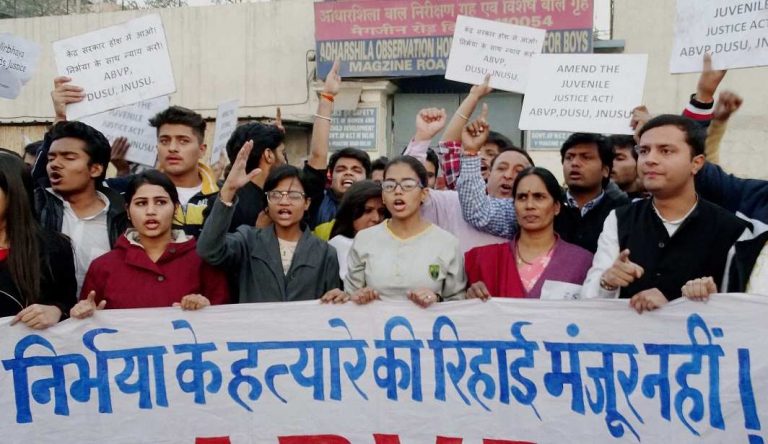
The horrifying 2012 Nirbhaya gang rape and murder case is still in courts, with the appeals filed by the convicts being heard.
The Supreme Court bench of Justices Dipak Misra, R. Banumathi and Ashok Bhushan heard senior counsel Sanjay R. Hegde, who was appointed as Amicus Curiae by this court. Hegde concluded his arguments.
Counsel for the convicts said on March 27 that the driving license of accused Mukesh filed by the state is not part of the trial court record and should not be permitted to be part of the present proceedings.
The Court called for TCR and Justice Banumathi studied it and noted the objection, but was not convinced with the counsel’s submission.
As per the current status report, read out by the counsel, all the accused have filed their affidavits. He contends that the fact that the accused persons also tried to actively destroy the evidence as also the diabolical nature of the crime calls for death penalty. The counsel said, citing a number of authorities that no mitigating circumstances exist in this particular case.
The counsel made a fervent appeal: What could be more harmful for the society, what more could be needed to satisfy the rarest of rarest test?
The counsel for the convicts submitted that since there was no common intention to rape and kill, this aspect must be looked into while deciding sentencing.
This was the delicate part of the case, where, the advocate pleaded that while this is a case where there is a common intention for rape, but maybe the common intention is missing for murder. Still, there is definitely common intention for rape and murder in a circumstantial nature.
The warning was to see it clear light and not take the majoritarian view which then could take precedence over what is the just thing to do. Herein lies the thin separating line, the counsel for the accused pointed out: There is no conclusive evidence that all the accused participated equally in the crime. And further, there is nothing to show that the accused persons cannot be redeemed. Therefore, the accused persons shall not be sent to gallows.
The matter is to be listed after seven days.
—By India Legal Bureau

